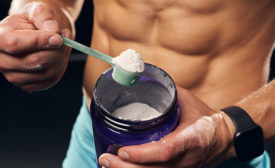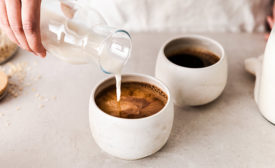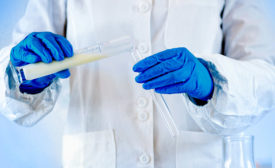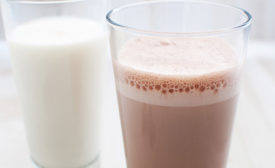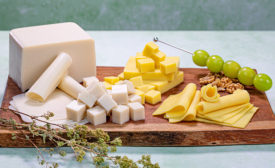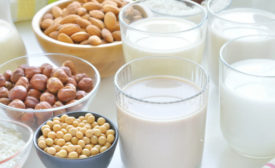Sharon Gerdes
Sharon Gerdes is the Health and Wellness editor of Dairy Foods. She is a Certified Food Scientist and author who writes extensively about dairy’s role in health and wellness. Learn more at http://sharongerdes.com.
ARTICLES
Different people, including athletes, have much different needs.
Read More
Coffee can percolate with both dairy and plant-based options
Almond and oat are the two most popular plant-based dairy alternatives for baristas.
March 11, 2024
Three servings of dairy daily promotes healthy aging
Aging results in a greater need for protein, calcium, potassium, and vitamins D and B12.TOPICS: Ingredients for dairy processors
February 7, 2024
How to create dairy proteins
Using genetic engineering, companies have developed technologies to produce specific proteins that are identical to the proteins that cows produce.
January 8, 2024
Dairy can help calm a stressed world
Milk contains a variety of nutrients that can ease stress and promote sleep.
December 21, 2023
Milk with sugar appeals to tweens
Milk still offers plenty of health benefits that are hard to match.
October 31, 2023
The health benefits of cheese
New research debunks conventional wisdom.
September 11, 2023
Plant-based dairy lags in nutrition
Protein is one place traditional dairy outshines its brethren.
August 9, 2023
98% of U.S. adults can consume dairy
Today, options abound for dairy-sensitive consumers.
June 7, 2023
Dairy is the key to a healthy gut microbiome
Dairy foods provide a great vehicle to gut health.
May 8, 2023
Get our new eMagazine delivered to your inbox every month.
Stay in the know on the latest dairy industry trends.
SUBSCRIBE TODAYCopyright ©2024. All Rights Reserved BNP Media.
Design, CMS, Hosting & Web Development :: ePublishing

